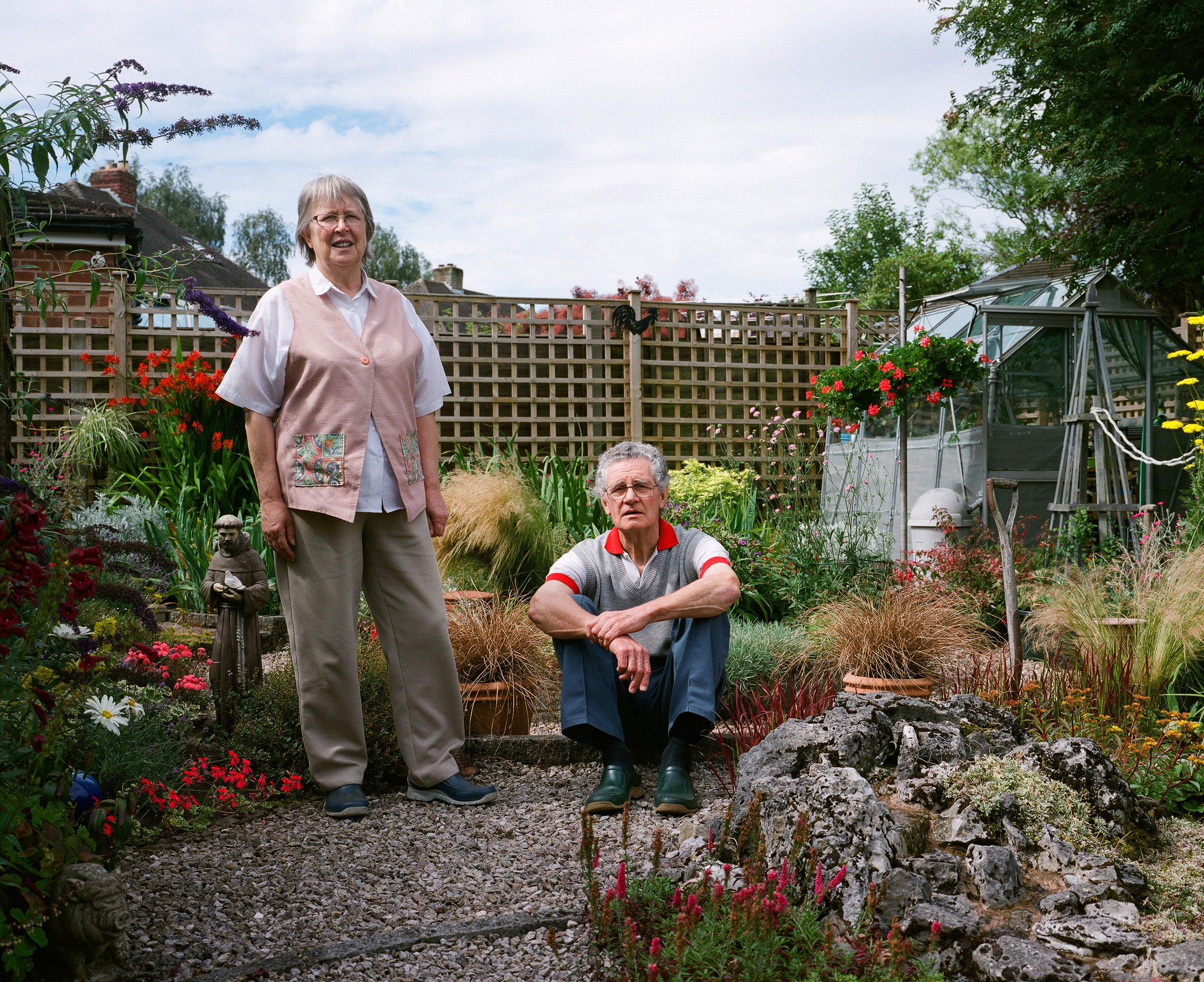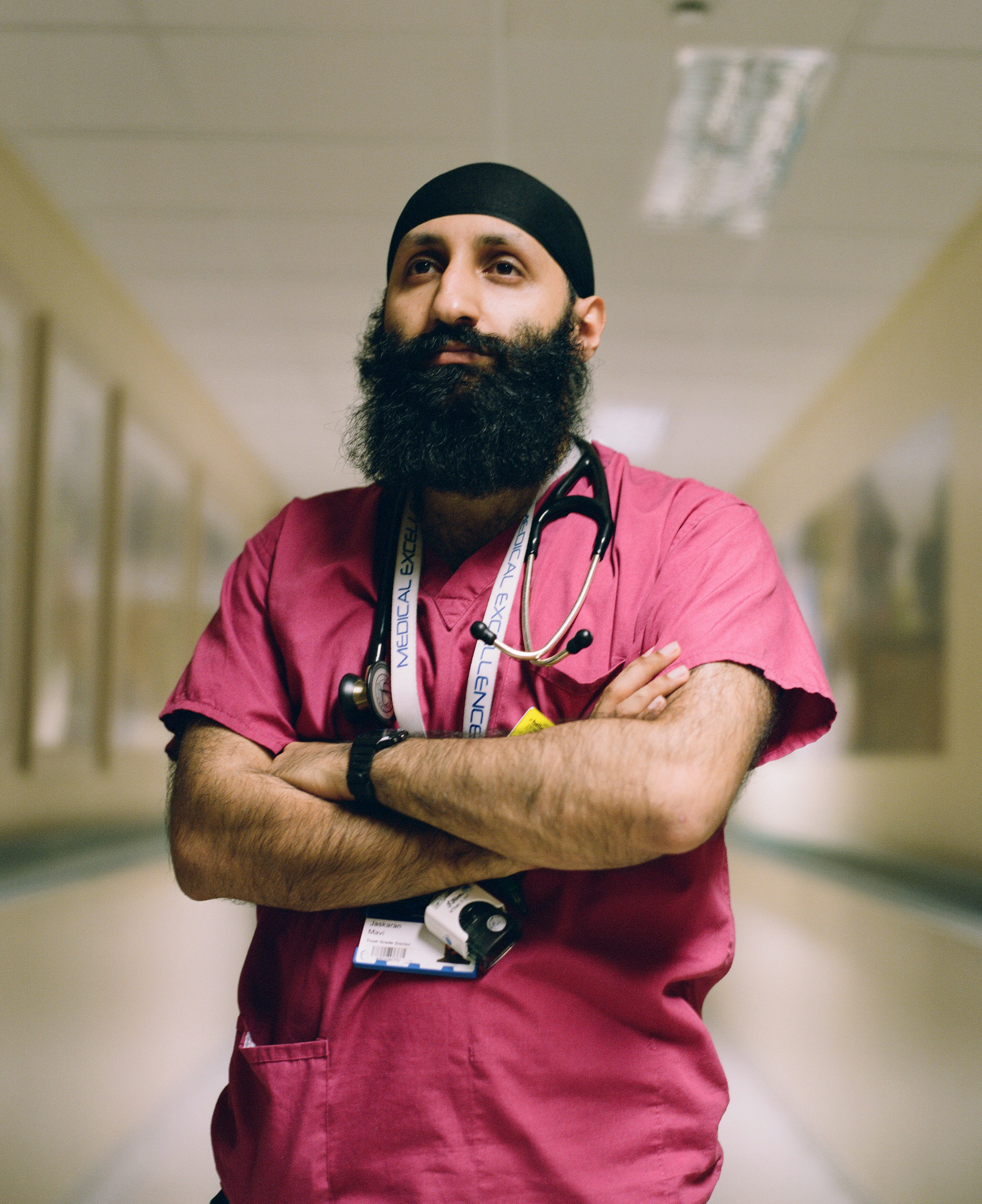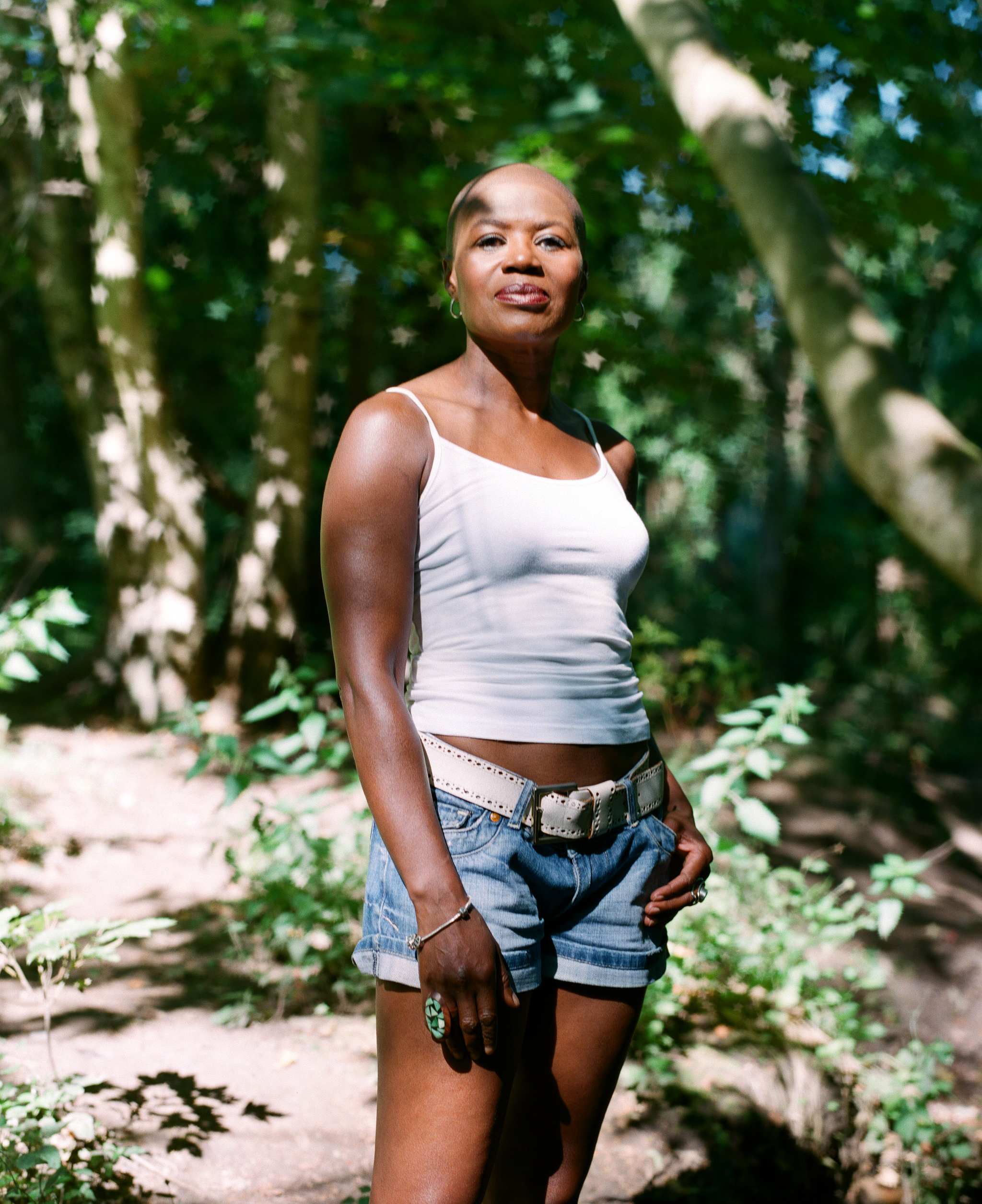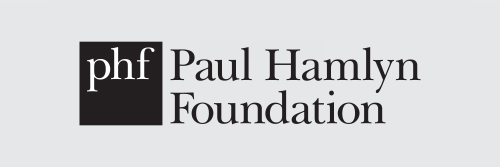


A Spotlight On… Jaskirt Boora
Open Eye Gallery’s interviewer in residence, Sara Sarf, speaks to socially engaged photographer Jaskirt Boora about her latest project Birmingham Lockdown Stories. Boora describes the process of working through lockdown and how people and stories fuel her work
Sara Sarf: I want to ask you about your current project, where you collect stories of lockdown from people of Birmingham and you are photographing them as well as giving workshops. How are you getting on with the project?
Jaskirt Boora: The project I’m working on with GRAIN should be completed by mid-October. GRAIN had a national open call, which I think anyone around the country could apply to. But I think because they have such a big volume of people applying, they ended up commissioning several series of commissions. One ended up being the seven additional Birmingham Commissions, which mine was a part of.
I’ve been focusing on different areas of Birmingham, and trying to photograph and collect stories from a cross range of people. Diversity is really important in my work in terms of different ages, ethnicities and genders. One of the things I’ve worked on with GRAIN is to try and get a person from each ward of Birmingham (out of the 10 wards), to get a real flavour of how people from Birmingham have been coping. Right now I’m working on a digital publication for my website and have submitted all the portraits and stories to GRAIN.
So you do interviews with them as well as photographing them?
Well, yes and no. It was more of a conversation. With each shoot I did, it was at least half a day I spent with them. We’d start off with having really long conversations about their experiences of lockdown. And just talking really about their life pre-lockdown too. Then we would work around the area of their choosing to produce a collaborative portrait, in that whatever location they chose reflected their lockdown experience. There was an option to do a photography workshop as well as submitting imagery they’d produced during lockdown too. Some of them took up the option to do the photography workshops, which we did via Zoom over a month, and a couple of them have contributed work though from those workshops. And then the other option was if they’d already created work which was part of their narrative of lockdown, they submitted those. Some of them contributed sketches and drawings that they made during lockdown.
It was a mixed bag, so some people gave content that they have already been producing and some people made new content. The photography workshops I did were focused on composition and lighting and then creating or documenting their own narrative.
So this project will be turned into a book?
Yes I’m hoping so, I’m currently working on a digital publication for my website and will see if it progresses into a physical book if the demand is there. Because of the amount of content I’ve got with the stories, the portraits and the content that the participants contributed, it made sense to put it together as a book.
Can I ask you about your engagement with Birmingham Crisis Centre, was this before you started this project or have they intertwined?
It coincided with getting the commission with GRAIN. I had sent my proposal for the GRAIN commission, but before I got that commission I had already decided to volunteer at the Birmingham Crisis Centre. My two children had started back at nursery and I wanted to do something positive in that time. And GRAIN had said they had hundreds of submissions, so I pressed ahead with volunteering and had already started when I got the news that I had won the commission from GRAIN as well. I ended up working on them at the same time, so to speak, although they are separate projects.
Have you been influenced by your own experience of lockdown to start this project, or did you start your lockdown project because of the commission?
My experience with lockdown definitely influenced my application for the GRAIN commission and for volunteering for the Birmingham Crisis Centre. The biggest thing in my own personal practice I’ve been looking at is trying to become more socially engaged, so running workshops and thinking about the authorship of the content I produce was really important. I wanted to explore not just my perspective in a narrative but producing a collaborative body of work. When the GRAIN commission came about, one of the things that they were looking for was community and togetherness, which was the thing that really struck me because during lockdown that was one of the things I experienced – a lot of good neighbourliness and community. I’ve lived in Sutton Coldfield for the last six years but I didn’t really know many of my neighbours. I knew a couple of them, but through the socially distanced VE street party I got to know my whole street.
Also in those first few months every day I was going for a walk with my kids around the block and I kept bumping into the same people that also had kids or that lived on the street opposite. This influenced the GRAIN commission in that I wanted to share that feel-good factor of good neighbourliness and community. I also wanted to spend a lot of time with people to get to know them and spread that goodwill.
Another experience I had during lockdown was seeing that a couple of my neighbours hadn’t really had any contact with anyone. I thought that sense of loneliness probably exists in a lot of places. For the Birmingham lockdown stories I wanted to let people have the opportunity to talk and not feel so alone in this kind of situation.
In terms of the work I did with the Birmingham Crisis Centre, that was very much born out of frustration and anger of what was going on with the death toll of COVID and then also the Black Lives Matter movement, and my frustration of not being able to do anything about these things. At the time I wasn’t teaching because it was six weeks holidays, and I wasn’t really coming into college when I was teaching prior to that. My interaction with people was really low and I just felt like I wasn’t doing anything worthwhile.
So, I wanted to do something positive and feel like I was doing something good in the world amongst all the doom and gloom. I reached out to the Centre to volunteer and see how I could help. And it was them that suggested to me to do the photography workshops, and I ended up doing about 10 weeks of workshops with the women there. At the moment it’s paused because they’ve had to go into lockdown in the refuge because someone tested positive. I haven’t been able to go there for the last few weeks.
Where we’re at with the workshops for the women, they’re using arts and crafts so they’re drawing, painting, stitching into the portraits that we’ve collaborated on so that needs to be done in person really.
Did you see any changes during these 10 weeks about their relationships or expressing themselves?
It was really interesting because when they first started off, they were quite closed, in terms of talking about their own experiences of what they’d experienced not just in lockdown but obviously they fled a really violent situation to be in a refuge. At the end of this initial six weeks, however, they were willing and open to share their stories, collaborate and make portraits of each other. So, for me that was really exciting because I wanted to empower their voices and them to feel like they could tell the stories.
They’ve had negative traumatic experiences in their life, so I’m hoping that by doing some of the workshops they’ve started to come out of their shell a lot more and build their confidence. And I’m hoping they can start to see the value in the work that they’re producing. Originally, they used disposable cameras and they shot their life in the refuge centre, and then we did some Japanese bookbinding and sequencing of their images that they collated.
It’s the first time I’ve done something like this with women from the refuge and I’m still figuring out the best way to empower their voices but also get across that positive impact for them. It’s definitely a learning curve process for myself as well.
I saw that you mainly worked with documentary and portrait photography and recently started to develop a socially engaged practice?
I used to do some collaborative portraits, but the body of work ‘Mitti di Khushboo’, on my families story of immigration from the Panjab to UK (commissioned and exhibited by MultiStory for the Blast! Photography Festival 2019), was a turning point in my practice. It kick-started me making work with more layers and voices then my own, and becoming more socially engaged in my practice. I was shooting portraits of my family members but I was also getting them to write their own personal histories, and I collected old photographs they had chosen to be part of their story and narrative. I feel like the lockdown stories and the work I have been doing with the women’s refuge have taken my socially engaged practice further since.
How did you develop your socially engaged practice?
Making the work for the Blast! photography festival helped me think wider, in terms of how I create a narrative. Researching and seeing the work exhibited at that festival was massive for me. The Girl Gaze exhibition and Uzma Mohsin’s work especially inspired me as the work was very much narrative led and collaborative in terms of the participants contributing in the making of the images. I think I started to see more socially engaged practice and that really has really opened my eyes in how I could do this. It struck me as a different way of approaching photography to empower people.
I had taken a five year break from my practise before I started working on Mitti di Khushboo in 2018, and I had lots of questions for myself. I really had to think about what type of artist I wanted to be, about how I wanted to spend my time making work and what would create the biggest impact in creating positive change in the communities and environments I live in. Also time is of the essence as a mother of two young children, I have a 4 and 2 year old, so I knew I wanted to make work that could create a positive impact, was fulfilling for myself and the communities I work with.
Can I ask how did you get into photography and how did you develop your style?
I studied communication, culture and media at Coventry University and I’d never done photography before, but in my second year I thankfully chose to do photography as one of my modules. I just fell in love with it. And it took off from there. I did a series of work on women’s football when I was at university and won the Photo Imaging Council Award for, and I continued that work when I left. I also did a body of work on British Asian musicians which started at Uni and I got Arts Council funding for after I left the university too.
I suppose I was always interested in portraits and people and their stories. I’ve always really enjoyed talking to people as I like finding out about what makes people tick. I like different stories about different subject matters. For instance, the women’s football work I’ve done, I played a lot of sports and I love football and at the time, going back 12 years, women’s football was massively underrepresented. So, with that body of work I really wanted to highlight the gender inequality in women’s sport.
My work has progressed and changed, I suppose it was a lot more portrait and documentary led before and I’m now trying to further expand it so it’s more collaborative. And there’s more dimensions to the narrative that’s being told than just my perspective.
I also saw that you are using medium format for your photos, how does that shape your practice?
The reason I use it rather than digital for my personal work is that it gives me a completely different frame of mind with how I approach my portraits. The fact that I only have 10 shots on this film roll, each shot counts, because it’s expensive, but also it slows down my process of working. I study the light more carefully, I think about the location, I talk it through with the participant and I’m not afraid to stop if something’s not quite working and try something different. I really don’t like wasting any of those 10 images so I like to get it right and take my time. And working in a socially engaged way helps in that manner, especially with shooting the Birmingham Lockdown stories as everyone had lots of time to give.
With digital you can just go and keep shooting hundreds of pictures, which can have its advantages in certain scenarios, but doesn’t work as well for me when I’m trying to take more considered portraits. I still take a digital camera with me for every shoot though to do my test shots on. I also love the look and the feel that film images give.
Has your teaching been influencing your photography practice?
I have been incorporating my teaching experience and knowledge into workshops I’ve been doing. I’ve really enjoyed adding more socially engaged practice into my teaching practice too, by discussing and debating more ethical issues in photography with my students too. A lot of the practical elements in the workshops have been influenced and refined by what I’ve learnt and developed over the years as a lecturer in photography.
I want to create a positive change in society, that’s essentially what I’m trying to do in my photography practice and this is also what I want to try and achieve with the students I teach too. I want them to become well rounded human beings, not just good photographers. And if there is anything I can do to help them on that journey I will try.
–
Images
Bob and Alison, Jaskirt Boora, Birmingham Lockdown Stories
Dr Jaskaran Singh Mavi, Jaskirt Boora, Birmingham Lockdown Stories
Elayne, Jaskirt Boora, Birmingham Lockdown Stories

